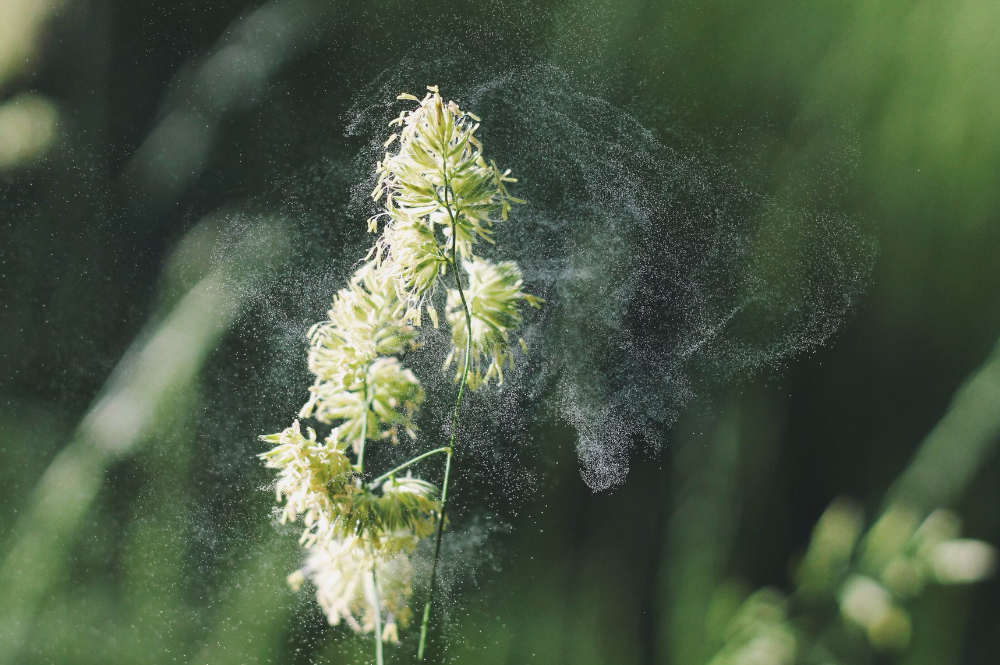March 2025
Dr. Neuman's Guide to Surviving Allergy Season
Non-Pharmacologic Approaches
Air Purifier: Use one with a HEPA filter (ideally by your bed) and change filters regularly according to your device's instructions
Shower Routine: Shower before bed or when returning home to remove allergens
Mask Usage: Consider wearing a mask outdoors (and indoors for some individuals)
Treatment Steps
Start with Step 1 for mild symptoms or Step 2 for moderate/severe symptoms
Step 1: As-Needed Antihistamine
For mild symptoms only, use a second-generation antihistamine as needed:
Levocetirizine (Xyzal)
Loratadine (Claritin)
Fexofenadine (Allegra)
Cetirizine (Zyrtec)
Step 2: Nasal Corticosteroid
Fluticasone nasal spray: Two sprays per nostril aimed upward and outward
Use once nightly (maximum twice daily)
Start early in the season, recommended to begin now for those most affected
Step 3: Saline Rinses
Perform saline nasal rinses once daily to clear allergens
Step 4: Daily Antihistamine
Take a second-generation antihistamine daily (same options as Step 1)
Optional Step 4b: For those who respond well without agitation or excessive sedation, add a first-generation sedating antihistamine at night:
Diphenhydramine (Benadryl)
Doxylamine (Unisom)
Step 5: Antihistamine Nasal Spray
Azelastine (Astepro): 1-2 sprays per nostril, 1-2 times daily
When to Seek Medical Care
If you've tried all steps above and still have symptoms, schedule an appointment to discuss:
Daily preventative medication (montelukast/Singulair)
Allergy testing with potential allergist referral
Sinus anatomy evaluation with CT scan and ENT follow-up
Measles Resurgence: What You Need to Know
Measles, a disease declared eradicated in the United States in 2000, has made a concerning comeback due to declining vaccination rates. This highly contagious virus carries significant health risks, including a serious complication rate of approximately 2% (resulting in severe pneumonia or brain swelling) and a mortality rate of 0.2%.
Protection Options
If you've never been immunized, a single MMR booster can provide effective protection against the virus and its potential complications. For those uncertain about their vaccination status or concerned they may be among the 5-10% who don't develop lasting immunity from the primary series, antibody-level testing is available through our lab. Write info@allyprimarycare.com to schedule a time to get your titers (antibody levels) tested.
Addressing Vaccination Concerns
Vaccine hesitancy has been fueled by various concerns that scientific research has systematically addressed:
The purported link between vaccines and autism has been thoroughly debunked by numerous comprehensive studies.
Regarding egg allergies: Modern vaccines contain significantly reduced levels of egg protein. A recent study involving 113 individuals with severe egg allergies who received the typhoid vaccine (which contains the highest level of egg protein among vaccines) showed no allergic reactions whatsoever.
These evidence-based findings continue to reinforce the safety and importance of vaccination in protecting both individual and public health.
Fun Fact: The photo above is from the front page of The New York Times, featuring Dr. Leila Myrick, the physician who treated patient zero of the latest measles outbreak, and Dr. Neuman's former Emory co-resident and friend.
Exercise and Cholesterol: New Findings
Based on a recently published large review of 148 studies with over 8,600 people, researchers found that regular exercise helps improve cholesterol and blood lipid (fat) levels, which can lower your risk of heart disease. This study was novel in quantifying how much exercise to reduce total cholesterol. They showed a 7.68 reduction in total cholesterol for each day of exercise weekly, and a 0.5 reduction each consecutive week. So, working out twice weekly for ten weeks would be expected to lower the total cholesterol by 20 points.
Additional Findings:
Exercise improves all of the important blood lipid measurements:
Lowers total cholesterol
Raises "good" cholesterol (HDL)
Lowers "bad" cholesterol (LDL)
Reduces triglycerides (another type of fat in your blood)
Combining both cardio exercise (like walking or swimming) and strength training gives the best results
Semaglutide for Reducing Alcohol Consumption
A new study investigated whether semaglutide (a GLP-1 receptor agonist medication and also known as WeGovy, Ozempic, and Mounjaro) could help reduce alcohol consumption in people with alcohol use disorder (AUD).
Key Findings:
Over 9 weeks of treatment, participants taking low-dose semaglutide (0.25 - 1.0 mg weekly):
Had fewer drinks per drinking day, but not fewer days drinking
Reported significantly less alcohol craving
Experienced reduced heavy drinking over time relative to placebo
Among smokers, showed greater reductions in cigarettes per day
Dr. Neuman says: "Semaglutide may not be ready for everyone. This was a pilot study with good promising results, but many questions remain. The simplest explanation for reduced drinks/day while not reducing the days folks drink would be that people get full much faster, and are therefore unable to drink as much. They found higher risk of side effects in those of normal weight. For folks who would not like to wait for larger studies to come out, schedule a visit with me so I can share the full rundown of benefits and risks."





